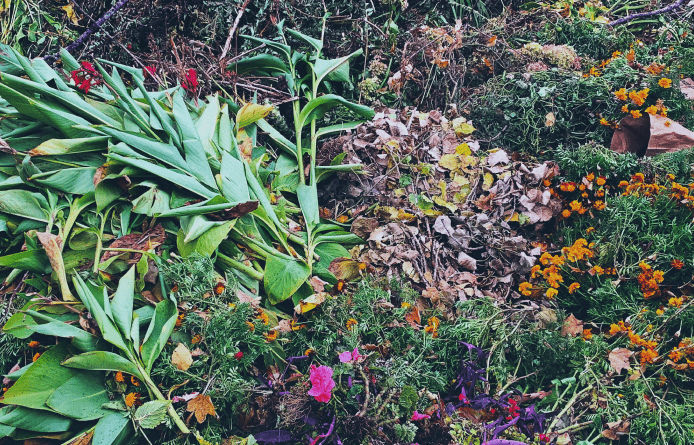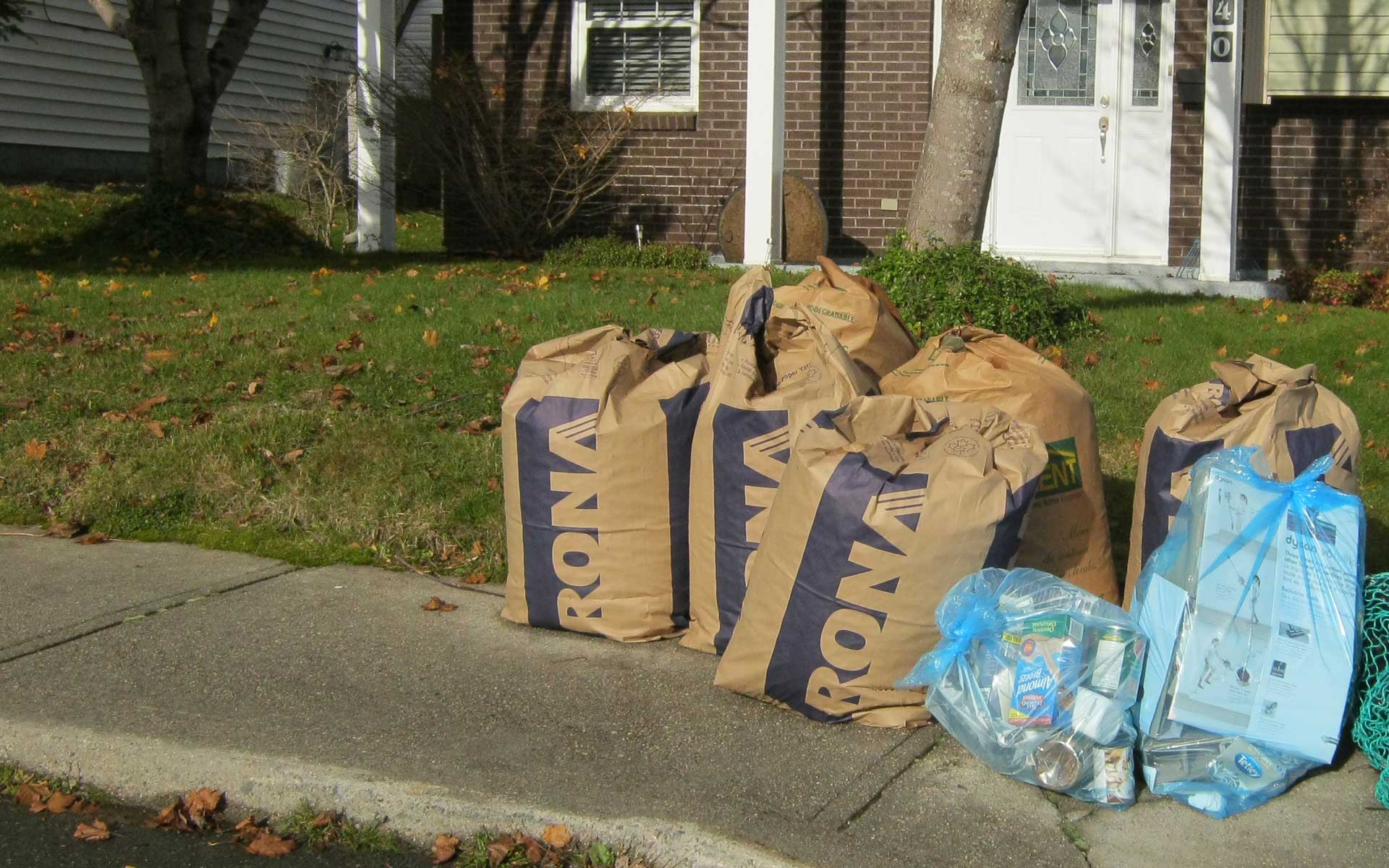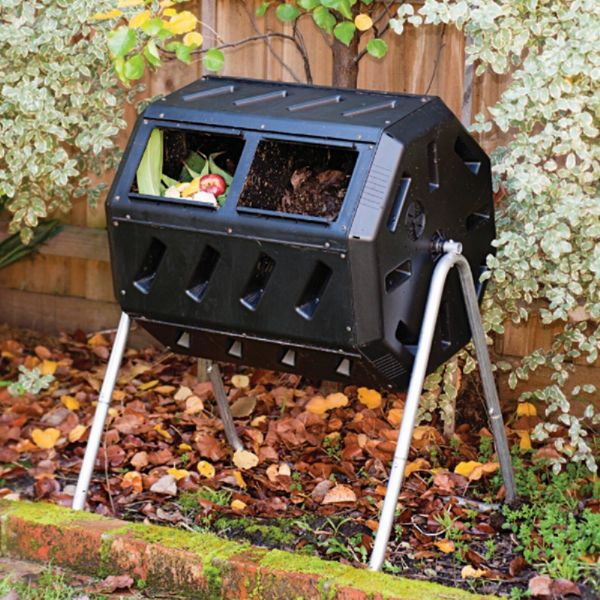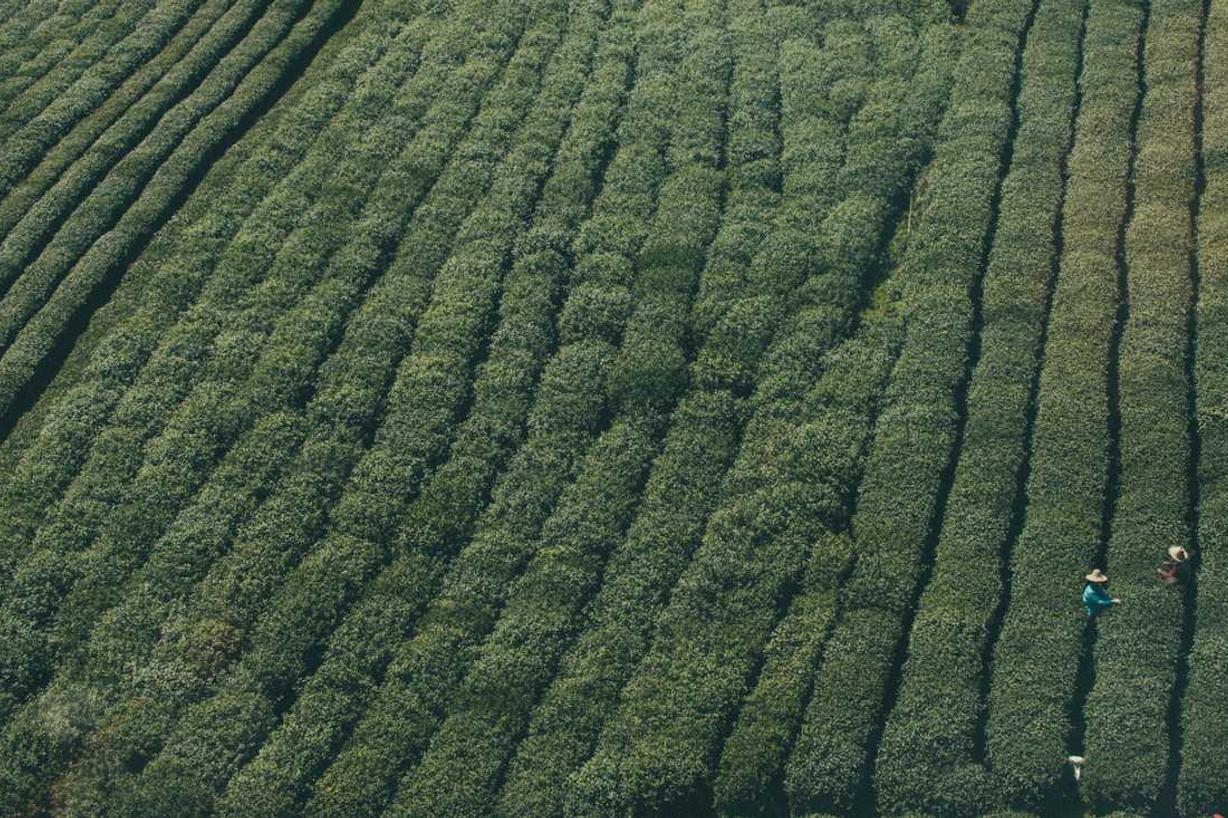From May to November the City of St. John’s collects yard waste in paper yard waste bags only.
Since 2018, the City of St. John’s has required the use of paper yard waste bags for curbside yard waste due to the high economic and environmental costs of landfilling compostable material. We have composted more than 6,000 tonnes of yard waste in that time resulting in a reduction of greenhouse gas emissions by 180 tonnes which is equivalent to taking 57 passenger vehicles off the road for a year, and a savings of over $450,000 in tipping fees.
Curbside Yard Waste Collection
From May to November the City of St. John’s collects yard waste in paper yard waste bags only. Yard waste is composted and used in landscaping projects on City land. Place the paper yard waste bags at the curb on the same day as your recycling collection; learn your collection schedule on our schedule look-up. Yard waste in plastic bags will not be collected and will be left at the curb.
There is no limit to the number of paper yard waste bags that can be put at the curb for collection. Yard waste bags must be under 22.7 kg (50 lbs) and is collected separately from garbage and recycling. Paper yard waste bags are available at most hardware stores and building centres. Tied bundles of twigs and branches are accepted as long as they are no larger than 60 cm x 60 cm x 30 cm with a branch diameter of 2.5 cm or less (2 ft x 2 ft x 1 ft with a branch diameter of 1 in or less). Soil, sod and dirt can be included however must be no more than 5 kg (11 lbs) of the total maximum allowable weight of 22.7 kg (50 lbs) per yard waste bag.
There are many positive benefits to implementing mandatory paper bag use for yard waste including:
- Paper yard waste bags will be set outside of the new automated carts, saving space in the carts for your true garbage.
- Benefits the environment by keeping the material out of the landfill which extends its life.
- Financial benefit by saving the tipping fees charged by the Robin Hood Bay Waste Management Facility.
You can also bring your paper yard waste bags to the Robin Hood Bay Residential Drop-Off (RDO) year-round.
-
Recycle
- Backyard Composting
- Christmas Trees
- Commercial Businesses, Condos & Apartments
- Compost Giveaway
- Curbside Recycling
- Electronic Recycling
- Furniture ReUse at Robin Hood Bay
- Holiday Waste Diversion
- Household Hazardous Wastes
- Metal Recycling
- Other
- Paint Recycling
- Pumpkin Disposal
- Waste Stickers
- What Happens to Curbside Recycling
- Why blue bags for recycling?
- Why No Glass
- Yard Waste
Mulch or Compost Your Leaves and Grass Clippings
Mulching and composting leaves and grass clippings is an earth-friendly way to take care of your yard waste in your own backyard. By mulching and composting you and your yard benefit from the nutrients provided by decomposing leaves and grass.
How do I mulch?
Save your time, your money, your back and improve your lawn’s health by mulching leaves and grass clippings right on your lawn! There’s no need to rake, buy bags or lug the bags to the curb when you mulch your leaves and grass.
Mulching is the process of shredding leaves and grass with your lawn mower or leaf shredder and using them as mulch on your lawn and garden.
Mulched leaves and grass gives nutrients back to the soil. Your lawn and gardens will require less fertilizer and other additives. Leaf mulch also helps retain moisture in soil and in the prevention of the growth of weeds. Click Here to see a video on how it works.
How do I compost leaves and grass?
Add thin layers of leaf mulch (2.5 cms) to your backyard compost bin while alternating with other materials. You can also use a separate composter for only yard waste. For a leaf composter, alternate 15 cms of leaf mulch with a thin layer (2.5 cms) of soil or finished compost and maintain by turning it regularly and keeping it moist. Grass clippings can also be added to your composter.
Composting reduces the impact of climate change, and returns much needed carbon back to the earth which supports the growing of plants.
For more information on composting Click Here.
Dig Leaves Into Your Garden
Dig leaves directly into your garden to add organic matter and nutrients to the soil.
Use Leaves as Mulch
Put leaf mulch on gardens and flower beds and around trees and shrubs. Click Here to see a video on how it works.








